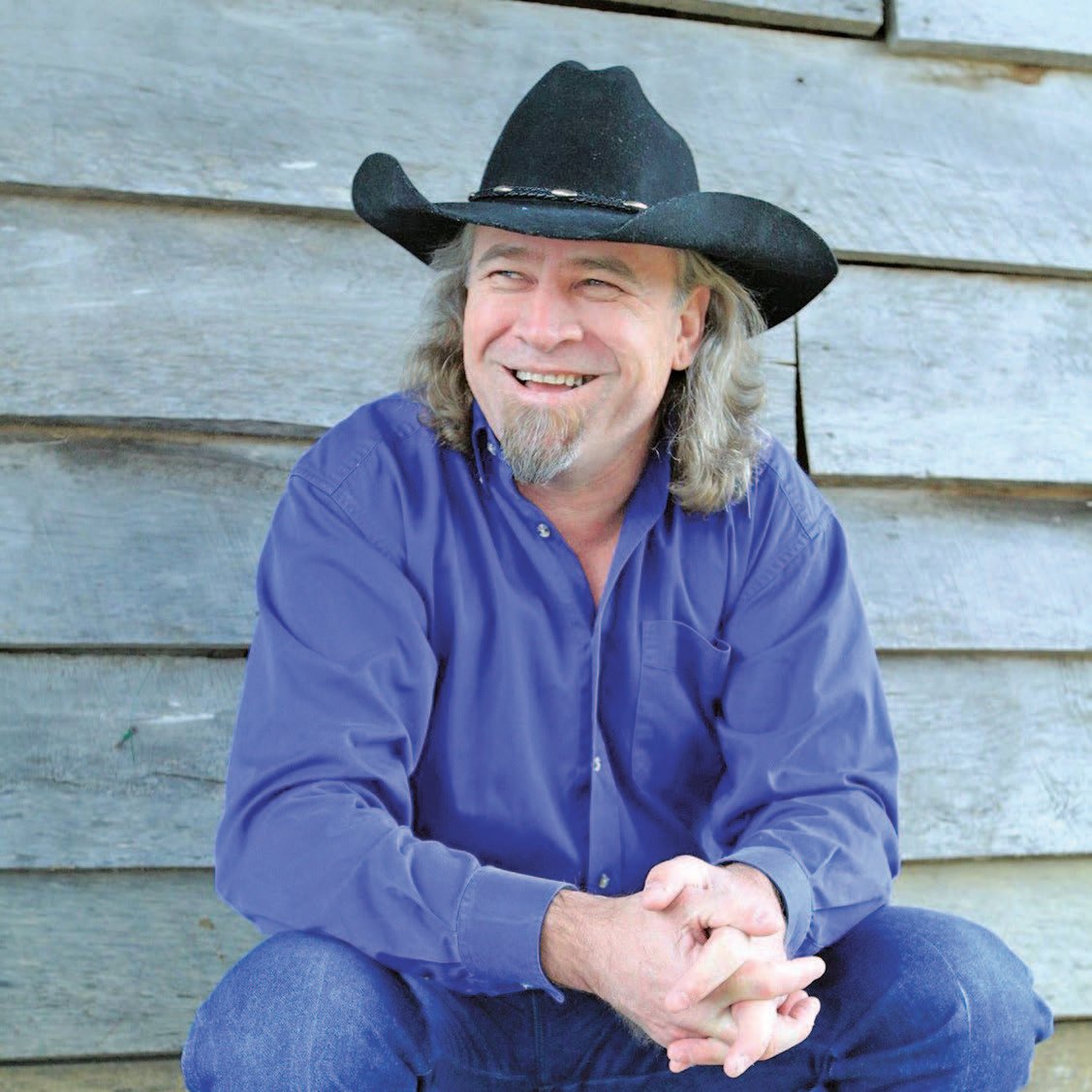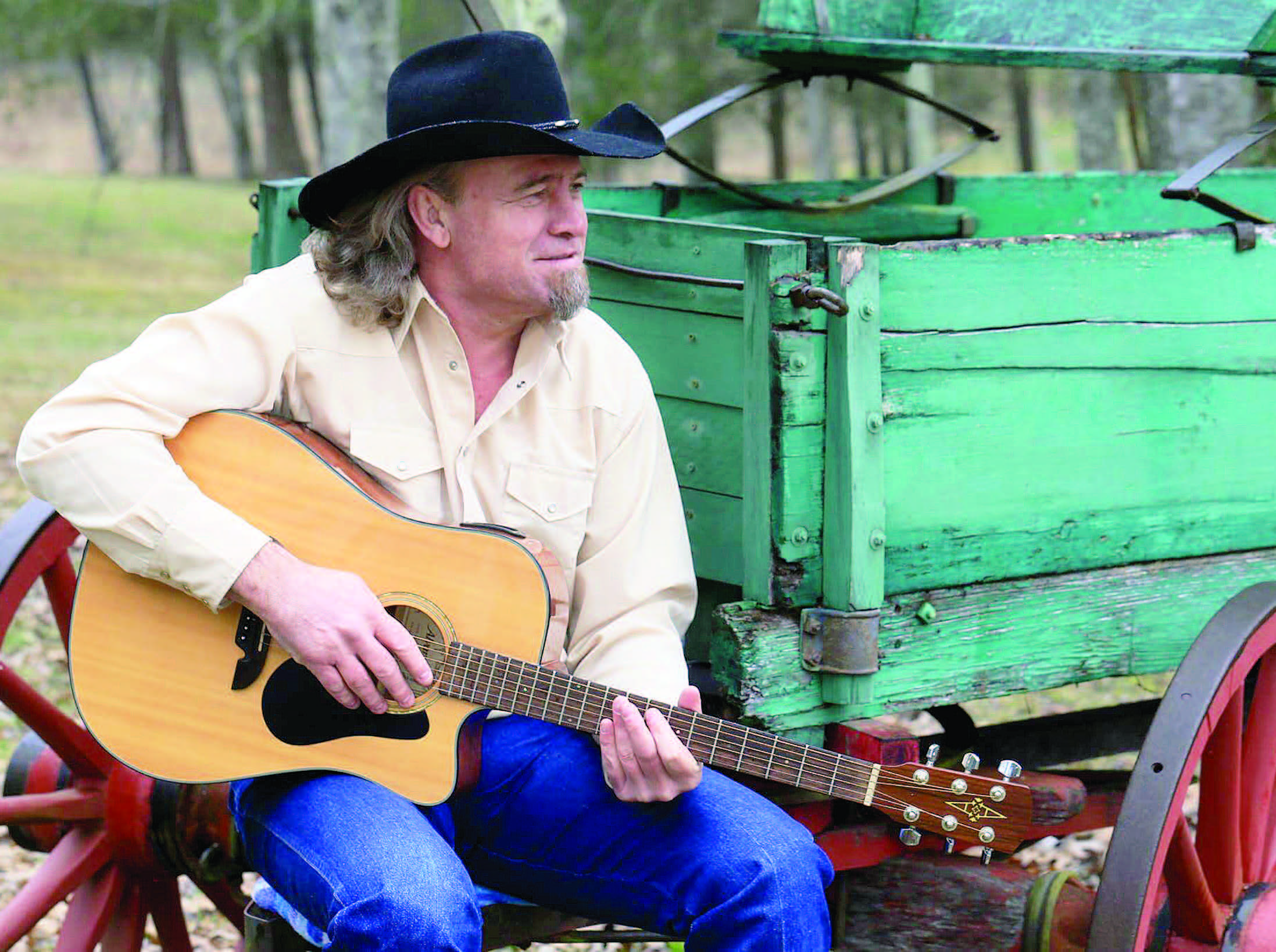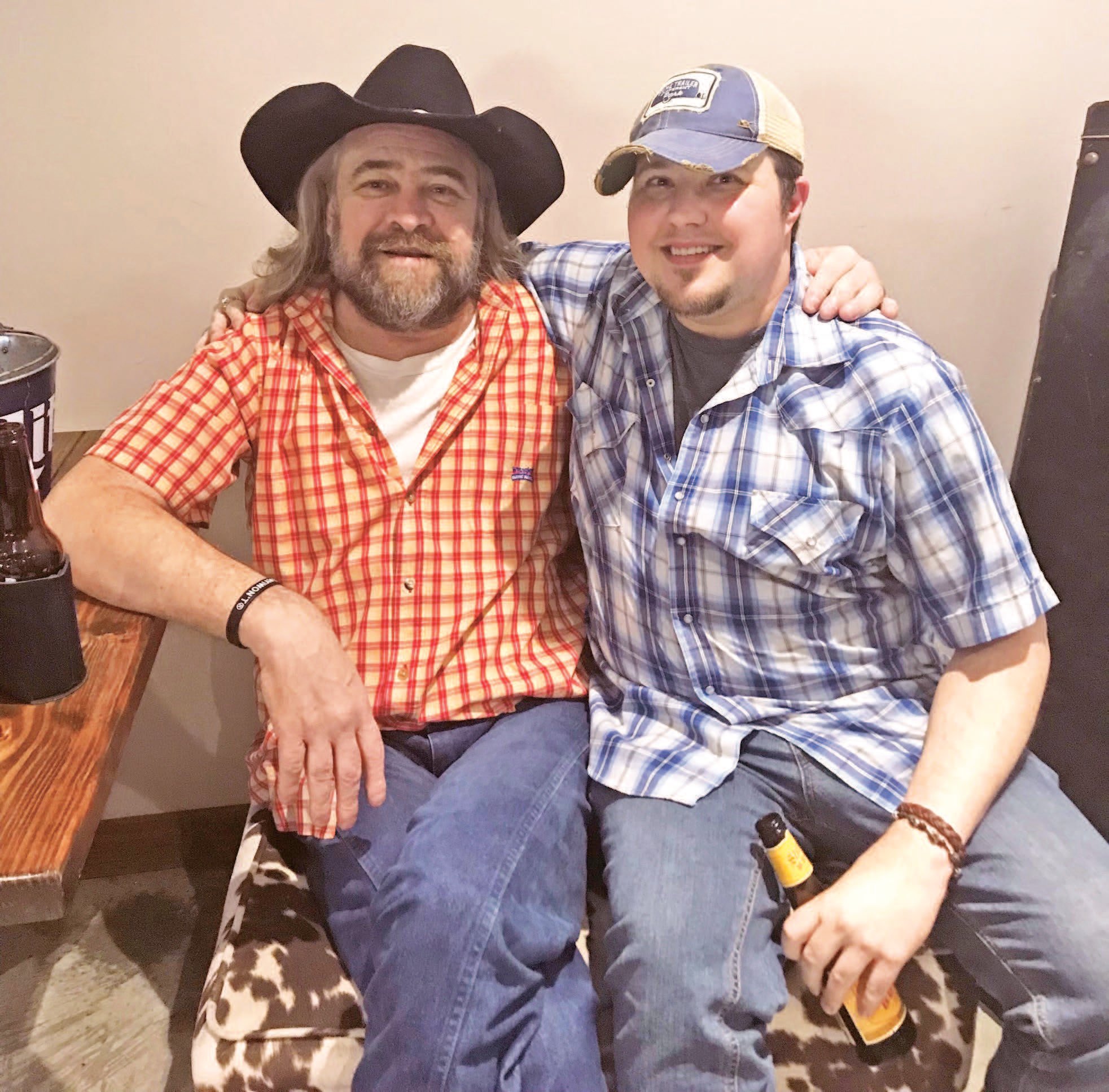 FILE PHOTO Douglas Anderson Supernaw
FILE PHOTO Douglas Anderson Supernaw
By Chris Edwards
“Pass the word I’ve done the best I can.”
- Doug Supernaw, “Fadin’ Renegade”
Each year the Country Music Association rolls out its exceedingly ridiculous parade of high-dollar fashion and spraytans and back-slapping. There was a fuss made in the aftermath of the most recent ceremony, about how it did not include tributes to three bona-fide country legends who had passed: John Prine, Jerry Jeff Walker and Billy Joe Shaver. Two days after the show aired, another legend of country music passed right here in deep East Texas, Mr. Douglas Anderson Supernaw.
Had the long, tall Texan died prior to the broadcast, I doubt they would have included a tribute to him, either.
The CMAs, like so much of what is trotted out to the general public as representative of the “music business” is fake, and Doug Supernaw was not. That guy was as real as Death Valley summers are hot.
If you’re a casual music fan of a certain age, you might remember when Supe was a big mainstream star, a time when “Reno” and “I Don’t Call Him Daddy” were played dozens of times a day on the radio. It was a time when there was still a place for country music that sounded like, well, country music, on the top of the Billboard charts, and there was a place in the big radio markets for great songs. Although that was all coming up on 30 years ago, those records, like Red and Rio Grande and You Still Got Me hold up as amazing collections of songs to this day.
 FILE PHOTO Douglas Anderson Supernaw
FILE PHOTO Douglas Anderson Supernaw
To most folks for whom music is not a big part of their life (and shame on them for their poor life choices), Supernaw was relegated to the “I haven’t heard anything about him in years” status, due to his disillusionment with the music business and other factors I won’t address here, but he was always around and always relevant. To that end, it was an honor to be able to chronicle his return to full-time touring and what was supposed to be a comeback to recorded product for this magazine’s inaugural issue back in 2018.
Sadly, it was a comeback that was cut all-too short. He was on a tear, playing great shows, promoting an album that showcased re-recordings of many of his old hits, and reminding the world that he was a force to be reckoned with. However, a nagging cough and other symptoms led to an eventual diagnosis of advanced forms of cancer in early 2019. The doctors, from what I’m told, did not give him much time, but they had no idea just how tough a man Doug Supernaw really was. He beat one of the cancers, and, after some aggressive treatments and the caring prayers and meditative energies from legions of fans and friends, it looked like he had beaten it all for good.
It was not to be, though.
The last time I saw him was during the Christmas parade in downtown Livingston in 2019. He was helping out in his wife Cissy’s shop downtown, and he looked great. Seeing him greet customers as they walked in, and help out with moving furniture and other goods, made me wonder if any of the folks coming into the store knew they were in the presence of greatness.
Things seemed to be going well for him in the drawn-out debacle that was 2020, but then in September, word had gotten around via social media that his health had taken a drastic and sudden wrong turn. That news was a punch to my solar plexus, and I’m sure it took the breath of many fans upon discovery.
The first time I saw Doug Supernaw onstage was at one of the Jasper Lions Club rodeos in the early ‘90s. I’d tagged along with my mom, and was blown away, not just by the music and his performance, but by the example I saw after the show.
I stood in line with my rodeo program to be autographed and waited impatiently. I still loathe standing in lines to this day, otherwise I’m about as longsuffering as a Hindu cow. What Doug was doing, though, was making sure that he not only signed whatever the fans in line had for him, but that he got to hang out and talk to each and every one of them for a bit. All of this, in spite of the fact that the sack full of Burger King goodies sitting on the table behind him was getting cold.
Through the years I’ve heard stories about how he played benefit shows for families in need, or for causes near to his heart, when he could have played big-paying shows, instead. I’ve heard stories about how he gave of his time to help coach Little League teams or would spring into action is someone needed help with their horses. He’d do anything for anyone. He was just a regular, very real guy, albeit one with a massive amount of talent and a beautiful, beautiful soul.
Despite how much he tried to blend in, however, there was just something magnetic about Doug. He had a sort of charisma that made him stand out wherever he was. I remember a few years ago hanging out with him at a Texas Country Music Association event in Longview, and there were a good many musicians, industry folks and fans coming and going; oblivious to most everything and everyone else but him. Everyone wanted to stop and talk to him.
Another time, at a party in San Marcos, after a music festival he’d played, he was the center of attention, even though it seemed like he would’ve been content to just sit on the host’s couch and eat pizza. Everyone at the party hung on his words about getting to meet Neil Young, or stories about playing Farm Aid events and of what the Beach Boys were really like.
 MOLLIE LASALLE | ETXN The late, great Doug Supernaw with the author, backstage.
MOLLIE LASALLE | ETXN The late, great Doug Supernaw with the author, backstage.
One of the stories I’ve heard that best illustrates Doug Supernaw in a nutshell comes from the Midlandbased singer/songwriter Scott Hayley, whom Supe was mentoring shortly before he entered into hospice care. Hayley recently recounted via Facebook posting of how he and Doug were on a road-trip, and Tanya Tucker’s version of the Allen Shamblin tune “The House That Built Me” came on the radio. The song, which was a big hit when it was recorded by Miranda Lambert, recounts a house full of memories once occupied by the narrator, who returns as an adult to the house she grew up in.
When it hit radio with Lambert’s rendition, it was at a time that Supernaw wasn’t likely paying much attention to pop culture or what was on the radio. Hayley said that he looked over at his friend, who was riding shotgun, and the beauty of the song struck him to the point of bringing him to tears. “It’s so beautiful,” is what he said of the song.
That story spoke volumes to me about what kind of a guy Doug was. He was, on the surface, a fun-loving fellow who was the life of the party, and someone who loved to laugh (and make others laugh) but he was also a guy with an enormous amount of talent and a truly beautiful soul.
The wave of mainstream popularity that Supernaw enjoyed in the early 1990s may have been his own slice of 15 minutes of fame, but he was important to many people far beyond the short, fickle memories and attention spans of gauche mainstream culture. All of that CMA Awards glitz and readymade Instagram-posting “outlaw” stuff is, again, utterly fake and Doug Supernaw was not.
His success and legacy prove that every now and again the good guys finish first and come out on top, and lately, that same concept holds true with the popularity of real artists like Jason Isbell, Tyler Childers and Chris Stapleton making legit art.
Their popularity probably seems like an aberration to those whose image of country music is defined by Jason Aldean and rapped verses about tractors and beer over computer-generated drumbeats. I’m sure that if Doug Supernaw were just starting out today, he would seem like an outlier, confined to what mainstream radio looks at as the ghetto of “Americana” or “traditional country.” But then again, the real music and real people making that music are still out there. It just requires more effort to find them than most folks are willing to commit.
To many around Livingston, no doubt, he was just Doug, a magnetic and charming fellow who could be seen around town just enjoying life and the company of friends and his lovely wife Cissy.
If such a thing as an angel on earth exists, it is his widow. Supposedly, in the mid-90’s when Doug was hanging out in the area, after a gig, he spotted her and said something to the effect of one day he’d return and marry her. Well, he must’ve had a bit of Nostradamus in him, because that’s what happened, and he not only found the love of his life, but a renewed vitality and commitment to his artform.
God bless Doug Supernaw, a most incredible artist and an even better human being.